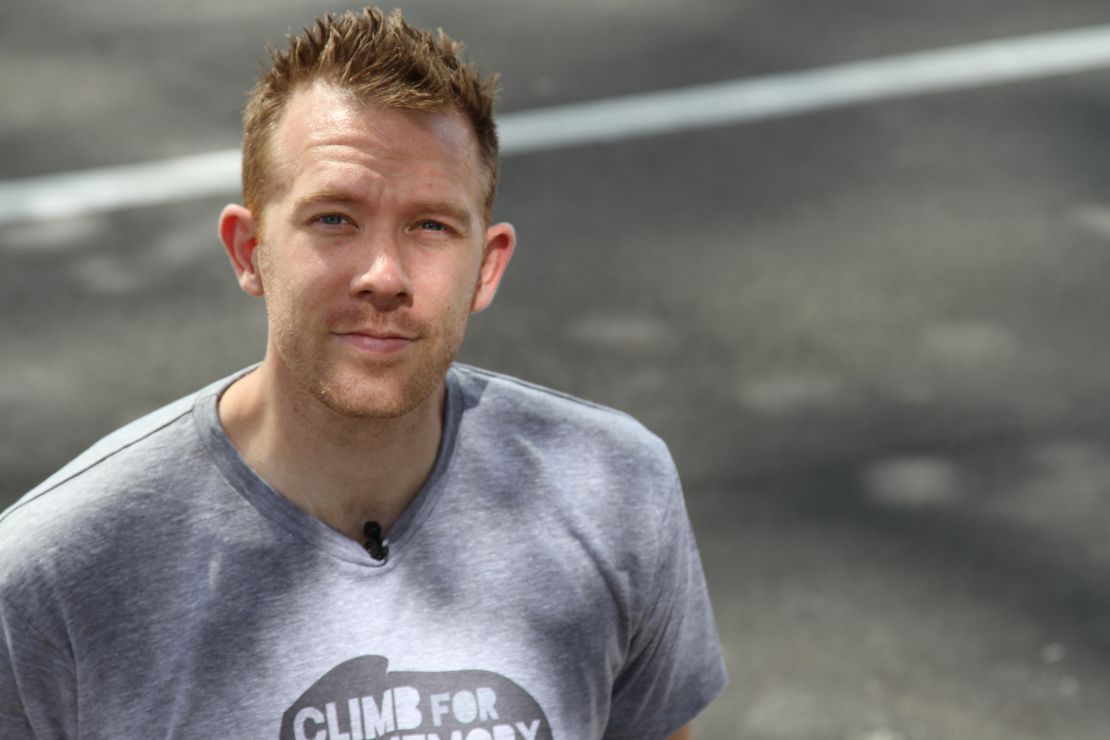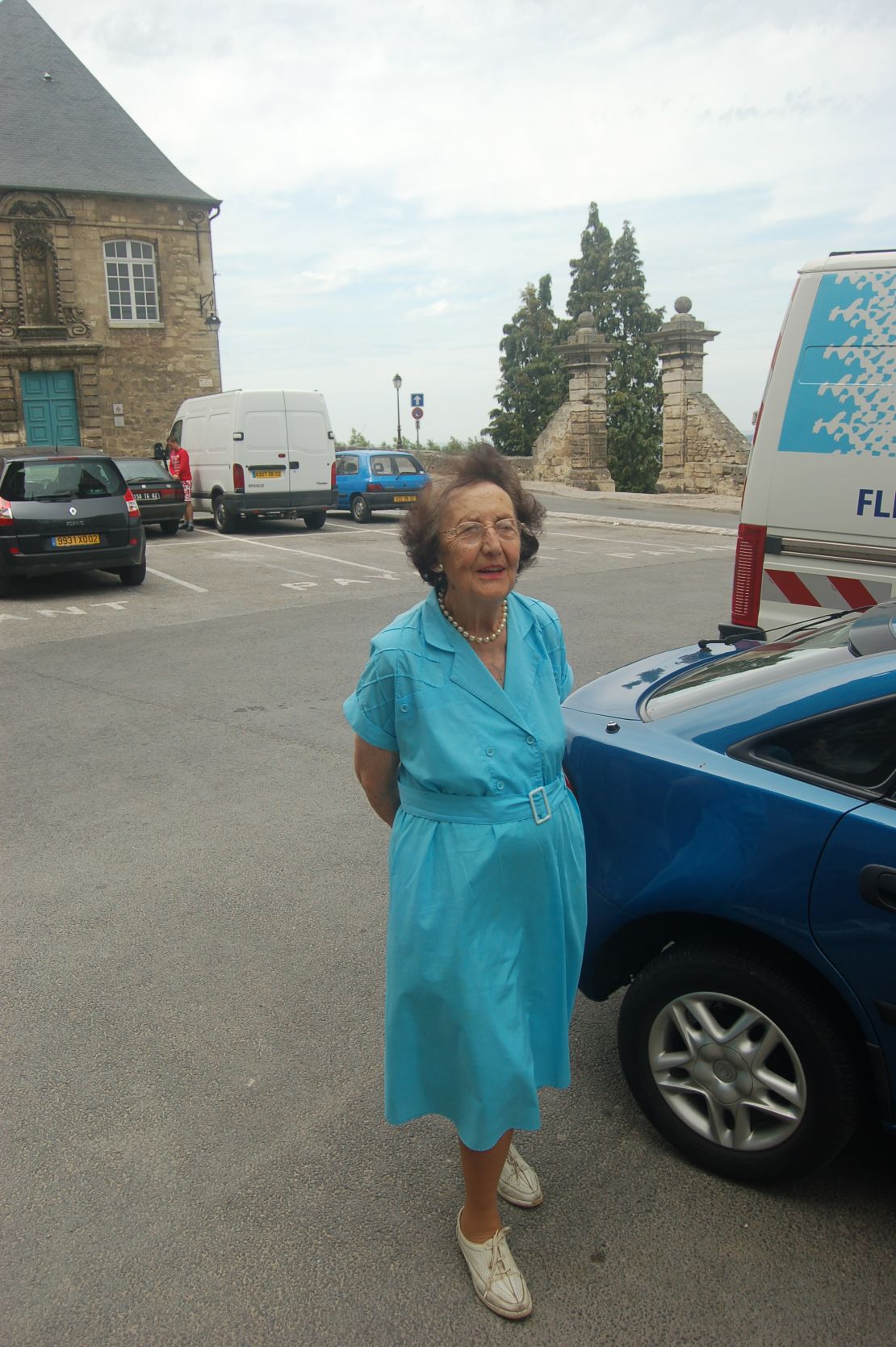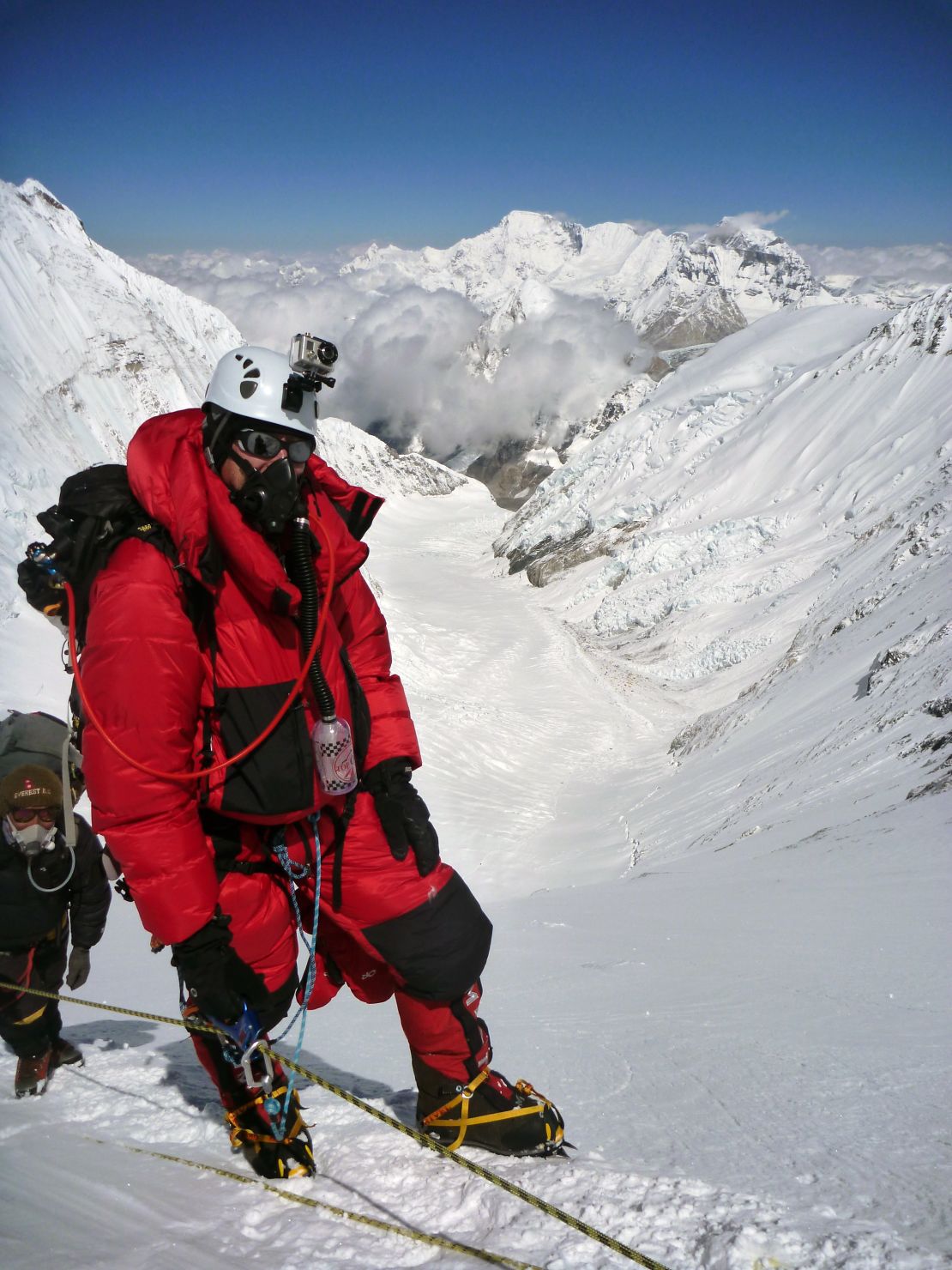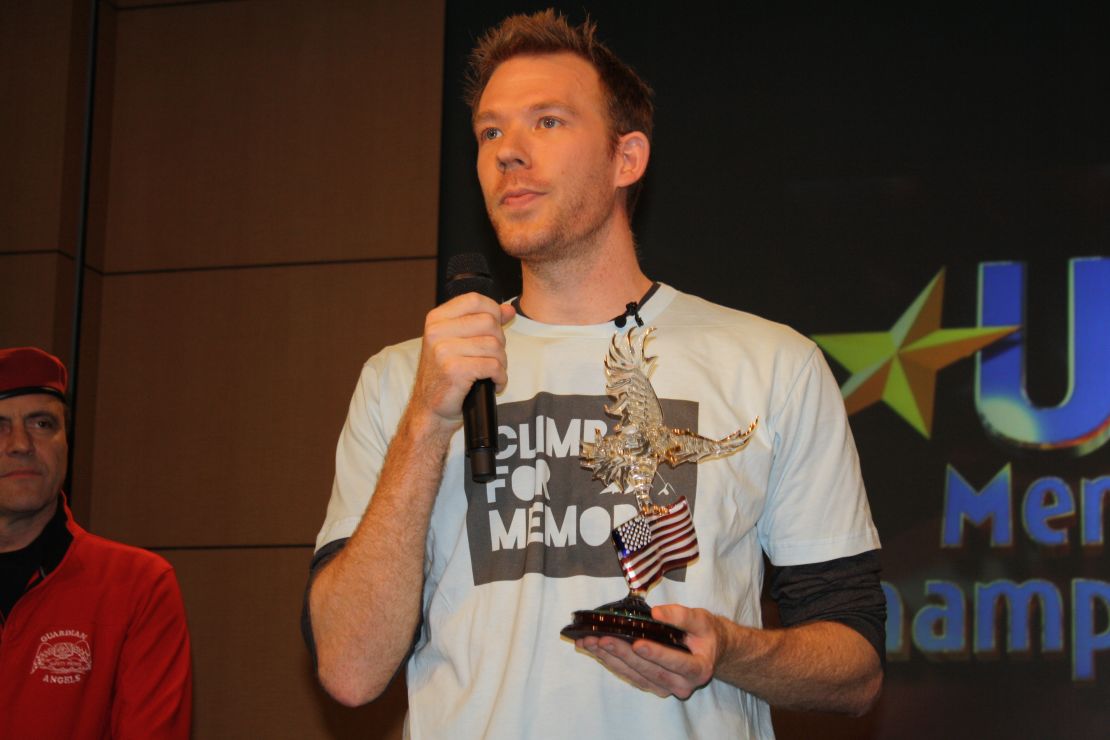Story highlights
Nelson Dellis, 28, defends his USA Memory Championship title this weekend
Dellis, of Miami, was motivated by the decline of his grandmother
He climbed to the top of the U.S. competitive memory ladder in three years
Dellis: My message is that many people can do this type of thing
Nelson Dellis might be able to memorize the order of a full deck of shuffled cards faster than you can thumb through and read it, let alone burn it in your mind.
In the five minutes it might take you to leave bed after smashing the alarm, he can memorize more than 300 digits – the equivalent of roughly 42 seven-digit phone numbers – and be ready to recite them in the order given.
Dellis, the current record-holding competitive recall king in the United States, says he has no special or photographic inherent memory, claiming he’s more than capable of misplacing his keys or forgetting whether he’s showered.
The 28-year-old Miami resident has been doing this seriously for only three years, and his success is like that of no other American. And he’s on a mission – only part of which is to defend his 2011 title. Dellis and 50 other mental athletes will compete in the 2012 USA Memory Championship on Saturday in New York City.
Speed numbers
One of Dellis’ other goals is to convince people that, with training, they can do the kinds of things he does. Still another is to raise money and literally climb mountains for Alzheimer’s disease research.
And this is where you realize that if you ever decide to exercise your mind like him, you’ll prefer not to have had experienced what he did to be motivated.
Birth of a champion begins with loss
Growing up in the United Kingdom, France and the United States, Dellis knew his grandmother Josephine, who lived outside Paris, as “ma douce,” a French term of endearment roughly meaning “my sweet.”
He saw less of Josephine when he moved to Miami as a teen. When she began years of suffering from Alzheimer’s, he’d notice her memory loss more each visit, culminating in a big shock in 2008.
“I have this memory of sitting at a table having dinner (in Europe) with her, my grandfather and me. And she said, ‘When is Nelson coming here?’” Dellis recalled in an interview last month. “I was sitting right in front of her. … It never hit me like that.”
Alzheimer’s was robbing him of a loved one, and he wondered what else it could take from him. Researching methods to improve the mind, he learned about memory competitions on the Web.
Mental athletes claiming to have average memories would use mnemonics – such as associating numbers with unforgettable images – to quickly memorize impressive amounts of words, cards and numbers. Dellis, a University of Miami physics graduate who was seeking a computer science master’s degree and believed his 3.9 GPA was more a product of hard work than natural brilliance, was intrigued.
“For people to say, ‘I have an average memory and can memorize a deck of cards,’ I needed to see if I could do it,” Dellis said.

So he dabbled with audio books by past champions and entered the 2009 USA Memory Championship, where he did nothing spectacular. He turned his attention to another recently acquired hobby, mountain climbing, and scaled Alaska’s Mt. McKinley. He returned to Florida exhilarated by the feat.
Then Josephine died, and he was brought back to reality. Alzheimer’s had defeated his grandmother.
“It really struck me (when she died) that my memory was something I had to take care of,” he said. “I was suddenly afraid for myself … I wanted to do something for myself, for her.”
He wanted control of his mind and figured competition might keep him sharp. He wanted to see how far he could stretch his memory and let others know they can exercise theirs. He wanted to honor Josephine and fight Alzheimer’s. He realized he could do both by exercising his mind through competition.
How to memorize a deck of cards in seconds
To win the USA Memory Championship, you first need to place in the top eight after four preliminary events – names and faces (memorizing photos with names, and later matching names with the photos); speed numbers (memorizing as many computer generated digits as you can in five minutes); poetry (reading and then recalling a poem); and speed cards (memorizing a shuffled deck of cards in the fastest time).
The field is whittled to five in the “spoken words” event. Competitors memorize dozens of words, and the first three who recall the list incorrectly are eliminated.

Next, strangers rattle off personal information to the five survivors, and the first two competitors with three mistakes during recall are ousted.
The three finalists are then given five minutes to memorize two decks of cards. The champion is crowned when two opponents have recalled the order incorrectly.
You can try to straight-up memorize dozens of digits, but good luck. Competitors use mnemonics to do the seemingly impossible, and Dellis – training daily following his grandmother’s death – learned the classics in books from eight-time world memory champ Dominic O’Brien.
Here’s how Dellis tackles numbers:
12468146036059283589624433074 …
He’ll memorize seven digits at a time, using the “person-action-object” method. Start by splitting the seven digits:
124-68-14
Ahead of time, he’s stored 999 people in his head, each associated with an action and an object. In Dellis’ mind, 124 is Michael Jordan doing something with a basketball; 68 is Stephen Hawking, whose action is rolling in a wheelchair; and 14 is a hockey player whose object is a hockey stick.
So, 124-68-14 is Michael Jordan rolling in a wheelchair while swinging a hockey stick. (Dellis says he may someday switch to eight digits at a time, in a 3-2-3 split.)
Similar tricks are used for cards, with each card representing a person, action or object, depending on its place in sequence. Combinations of three cards create an entire, memorable picture.
He’ll put that image on a mental floor plan, such as his high school, that’s personal to him. So if he’s recalling a number and he sees a Michael Jordan in a wheelchair swinging a stick at the start of his map, he’ll know his number starts with “1246814.” Then he’ll go to the next image on the map.
For cards, when he sees an image on his recall map, he’ll know to say the corresponding cards, such as “king of diamonds, 8 of clubs, 9 of hearts.”
This kind of creativity was one of the things that prompted first-time documentarian Jonathan Napolitano to follow Dellis and two other top mental athletes in 2010 and 2011.
“I think how creative it gets, especially with person-action-object, is what I appreciated about the film,” Napolitano said of his recently released documentary, “Ben Franklin Blowing Bubbles at a Sword: The Journey of a Mental Athlete,” which is playing at film festivals and looks at the competitors’ training ahead of the 2011 championship. “I think that’s why people can learn these techniques – it’s all about the stories they create and how bizarre they get.”

“It’s not just that Nelson can turn it on and memorize,” he added. “It’s that he and some of these other guys are so creative and can think on their toes.”
Dellis turned on the training as he moved to Massachusetts for a brief stint as a software developer. In 2010 he used his other new passion, mountain climbing, to create Climb for Memory, a charity through which he’d climb peaks to get donations for Alzheimer’s research.
At the 2010 USA Memory Championship, Dellis surprised everyone with a top-three finish, said Napolitano, who had just started his filming at that event. Dellis set a new U.S. record in speed numbers: 178 digits in five minutes.
But Dellis eliminated himself in the final round by recalling cards in reverse order – a mistake that haunted him over the year to come, Napolitano said.
Filming him in Boston over a few weekends, Napolitano saw Dellis – apparently determined not to make such a mistake again – challenge himself in training. He trained with cards and numbers outdoors, in busy Harvard Square, seeing what he could do in distractive circumstances.
“He took it to the next level. That’s what I was able to observe from the outside looking in,” Napolitano said. “I think he beat himself (in 2010). In 2011, he kept that in his back pocket: ‘I can be perfect 99 out of 100 times, but it only takes one mess-up to ruin it.’”
At the 2011 event, Dellis blew away his old speed numbers record, getting 248 in five minutes. And he broke the speed cards record of two-time U.S. champion Ron White, memorizing a deck in 63 seconds, down from White’s 87.
White is a U.S. Navy veteran who, not unlike Dellis, had sneaked up on the field three years earlier. But when both were on the final stage in 2011 and Dellis announced the 72nd card, White didn’t know the 73rd.
“I would just like to be the first one to congratulate the new USA champion, Nelson Dellis,” White said on the stage, ending the competition.
Training for this Saturday, Dellis’ numbers have improved even more, and his mission is just beginning.
Dellis’ new life, improved performance
Dellis moved back to Miami after the 2011 event, leaving his software job in part to focus on memory and Alzheimer’s-related ventures. He serves as ambassador to Utah-based software memory solution company Fusion-io. He gives talks about his climbs, including a 2011 trip up Mt. Everest, where equipment failure forced him to turn back 280 feet from the summit. He also gives seminars on his memory techniques, telling people that they, too, can work on their minds.
“My message is: Everyone can do this,” said Dellis, who tells people he used to be horrible with names. “People, names, dates, numbers – put it all together, it’s almost like I have different weapons to fight against things that come into my head all day long.”
Napolitano says that while he agrees people can pick up on Dellis’ techniques, Dellis might be too modest.
“The first time I memorized a deck of cards, it took 10 minutes, and I said, ‘I can’t do it in a minute. That doesn’t even make sense,’” Napolitano said. “I think he functions differently than other people. … Not everyone born can throw a 90 mph fast ball.”
“Can anyone do this? Yes. Can they do it like Nelson or Ronnie (White)? No. Well, maybe with time … but to beat someone like Ron or Nelson, you really have to go above and beyond (with training),” Napolitano added. “People can do it if they’re given time, but I think Nelson isn’t being cocky enough at this point.”
Regarding his fight against Alzheimer’s, Dellis acknowledges his techniques in particular aren’t proven to ward off the disease. But numerous studies have found associations between being mentally active and having lower risk for Alzheimer’s.

The Southeast Florida chapter of the Alzheimer’s Association is glad to have Dellis as an ally and to spread his message. Dellis has spoken at several association events, giving people quick mnemonic lessons and “bringing awareness about mental health,” development director Dottie Carson said.
He also plans to make another attempt at climbing Mt. Everest in 2013, with a goal of raising $290,000, adding a zero to Everest’s 29,000-foot peak, Carson said.
“He truly is a motivating individual … to all of us who are hanging onto every thread of memory that we can,” Carson said.
Tony Dottino, the USA Memory Championship’s chairman and founder, said Dellis has “a deep down drive to make a difference.”
“You listen to him talk about it, it’s from the heart,” he said. “Nelson focuses on what I call the give-back – the ability to contribute to society.”
Preparing for Saturday’s competition, Dellis recently has trained for five hours daily. In practice, his best speed cards time is now 33.13 seconds, and his best five-minute digit number is 340 – still far from the world records (as kept by the World Memory Championships) of 21.19 seconds and 500 digits, but well beyond his own U.S. records.
White will seek his old crown, Dottino said, and there’s always the chance that someone new has been training all year.
Dellis wants to win again. But he mostly wants to keep improving.
“I’m happy where I’ve gotten personally,” he said. “I’m really trying to prove to myself that my memory can be improved, that it’s not stagnant, that I can always improve.”
CNN’s Brandon Ancil contributed to this report.
